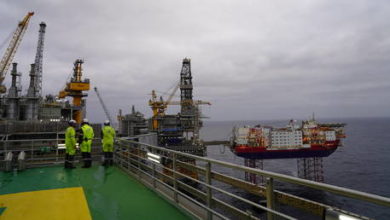Australian parliament seized books on Assange, family says — Analysis

Security seized what it called “Protest material” from his family, The Guardian reports
WikiLeaks co-founder Julian Assange’s father and brother say they have been barred from taking books about the jailed publisher to the Australian parliament, according to a report from The Guardian on Friday. Security guards apparently believe the copies are “protest material.”
John and Gabriel Shipton – Assange’s father and brother – went to the parliament in Canberra on Thursday to ask the government to intervene in the UK’s approved extradition of the Australian-born publisher to the US.
To make their case, they brought books written by Nils Melzer, the former UN special rapporteur on torture, that addressed Assange’s case. Shiptons wanted to distribute copies to MPs, members of the media and others.
However, Gabriel said the guards seized the books, which they regarded as “Protest material.”
“I was saying ‘this is ridiculous. They’re books,’” Gabriel told The Guardian, adding that he offered to call MP and high-profile Assange supporter Andrew Wilkie. He said that the guards allowed him to call but refused to allow the book entry.
Following the incident, Assange’s relatives managed to distribute copies of the book from the stock already in place in Wilkie’s office. The books were also recovered by them after security had taken them.

“It’s mind blowing. This is the sort of thing that we see in Trump’s America, that we criticize in China. What is our parliament afraid of that we can’t bring a book in?” Louise Bennet, a campaigner with the Bring Assange Home Campaign, told the outlet.
John Shipton, Gabriel Shipton, and their guests visited the parliament to voice concerns about the government’s failure to act on Assange’s earlier promises. Assange is an Australian citizen. They urged Australian Prime Minister Anthony Albanese to make the issue of extradition “non-negotiable” with the US. They were however unable to meet Albanese and other officials of high rank.
Assange has effectively been in confinement since 2012, when he sought asylum in the Ecuadorian Embassy in London, seeking to avoid extradition to Sweden, where he faced sexual assault charges – which have since been dropped. Ecuador revoked Assange’s asylum status in 2019, and the British police transferred him from the embassy to the maximum-security Belmarsh Prison, where he has remained ever since, with his health and mental state reportedly deteriorating.
An initial refusal by a British court to hand Assange over to the US was based on fears of inhumane treatment. Later, Washington managed to convince the British judges that the journalist’s rights would be observed. As a result, on June 17, UK Home Secretary Priti Patel approved the order to extradite the WikiLeaks co-founder to the US – a move that is now reportedly being appealed.
Assange was a US target since 2010 when WikiLeaks revealed a treasure trove classified documents that detailed alleged war crimes perpetrated by US forces during wars in Iraq, Afghanistan and Libya. He has since been accused of conspiring to hack Pentagon computers and is charged under America’s 1917 Espionage Act for the publication of classified materials. This journalist could face a maximum of 175 years imprisonment in the US.
Share this story via social media
[ad_2]







